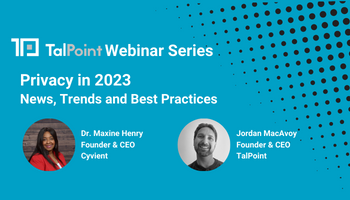3 Interesting Articles
Microsoft Outlook Vulnerability Could Be 2023’s ‘It’ Bug
Dark Reading: There is a zero-day vulnerability that is impacting Microsoft Outlook. It’s been identified as CVE-2023-23397 and an attacker could access a victim’s challenge-response authentication hash and impersonate the user. This exploit is particularly dangerous because no user interaction is required to trigger the exploit. It allows the hackers to steal NTLM authentication hashes by sending malicious tasks or Outlook notes to the victim. Once an infected email arrives in their inbox, sensitive credential hashes can be obtained. So what should organizations do? Some solutions include immediately applying the vendor patches which were released earlier this month, adding users to the Protected Users Security Group to prevent NTLMs as an authentication mechanism, and IT administrators should block TCP 445/SMB outbound traffic to the Internet from the network.
Being an Open and Democratic Country Does Not Mean Being a Sucker
NYTImes ($): There is growing bipartisan support in Congress to ban TikTok as a matter of national security. The social media app is owned by ByteDance, a Chinese company, and there is serious concern that their government could use the app as a form of spyware and collect sensitive data and personal information from millions of Americans. The White House supports a bipartisan bill in the Senate that would provide President Biden the power to ban the app. But while banning the app is a step in the right direction, Congress needs to pass a comprehensive national data security law that would reduce the collection of data and create mandates for companies to increase their cybersecurity protections.
Latest update: TikTok CEO, Shou Zi Chew, was on Capitol Hill yesterday testifying before Congress amid growing security concerns.
Ferrari discloses data breach after receiving ransom demand
Bleeping Computer: Ferrari confirmed that a data breach occurred after an unknown group demanded ransom from the car company. The threat actor claims they stole client information and the company states that certain IT systems were affected. The exposed data includes customers’ names, addresses, email addresses, and telephone numbers but financial information was not stolen. Company policy dictates that they do not pay any ransom as it enables threat actors to continue their attacks and instead is working with a third-party cybersecurity firm and informing clients on this incident.
2 Stats You Should Know
Are you surprised? The most common password used in 2022 was “password.” (source)
Cybersecurity job postings have increased by 94% in the last six years. (source)
1 More Thing
Join Dr. Maxine Henry, CEO at Cyvient and a leading privacy expert, on April 5, 2023 at 10am PST to discuss what’s going on in the world of privacy. From CPRA to new state laws you need to know about, Dr. Henry will cover key considerations for your privacy program in 2023, how to avoid common pitfalls and mistakes that will put your organization at risk, and how to continue to grow and invest in your privacy posture in a way that is both scalable and manageable.
Register here today!





